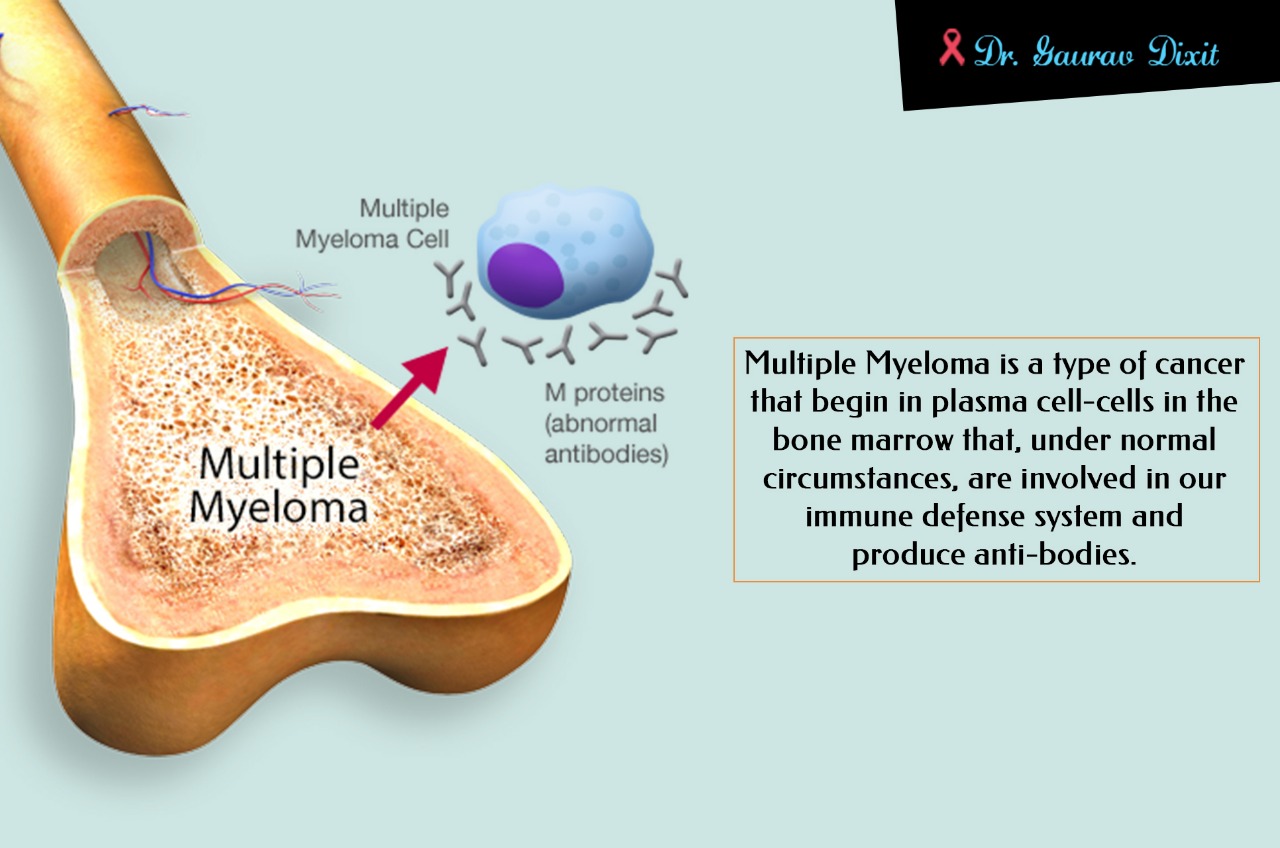This is a heading
Multiple Myeloma - Treatments & their side effects
Multiple myelomas are actually blood cancer that includes lymphoma and leukemia. The white blood cell called plasma cell multiplies unusually. Normally, they make antibodies that fight infections. But in multiple myeloma, they release too much protein into your bones and blood which eventually causes organ damage. However, there is no proper cure, treatments are effective in slowing down the malignancy. In this blog, we have highlighted the potential side effects of these treatments.
What are the treatments for myeloma?
After a diagnosis of multiple myeloma is made, treatment options can include:
Bisphosphonates
These are drugs used to treat prevent further bone damage, slow the damage process, and treat symptoms of bone damage caused by multiple myeloma.
Chemotherapy
Chemotherapy are oral drugs which are used to kill fast-growing cancer cells.
Radiation therapy
Uses high-powered x-rays to target tumors and disrupt the growth of cancer cells.
Stem cell transplant
In stem cell transplant, chemotherapy is used to kill cancer cells at first, then healthy stem cells are collected and reinfused so that new blood cells can form.
Targeted therapy
Drugs are used to stop the growth of myeloma cells by blocking the action of the abnormal protein that stimulates the growth of myeloma cells.
Biological therapy
They work by activating the body’s immune system to fight myeloma cells
What are the side effects?
All treatments can cause side-effects. However, the type and severity will vary between Patient to patient. Generally, the more intensive are the treatments, the more severe are its side effects. It is important to report any symptoms you are having to your doctor so that they can be treated and are reversible.
The side-effects caused by radiotherapy is almost similar to those caused by chemotherapy that includes nausea and vomiting, hair loss and fatigue.
Effects on the bone marrow
Chemotherapy affects the bone marrow’s ability to produce adequate numbers of blood cells. As a result, your blood count will generally fall within a week of treatment. If your red blood cell count and hemoglobin levels drop you will probably become anemic which inturn make you feel more tired and lethargic than usual. Our doctor may prescribe a blood transfusion at this stage.
Risk of infection
If you are under therapy, your white blood cell count also drops out drastically. So, you will be at a higher risk of developing an infection. The Neutrophils are important white blood cells that help us to fight infection. While you are Neutropenic(Low counts of Neutrophils), you should take sensible precautions to help prevent infection. Our doctor might give some injections to increase the counts.
Nausea and vomiting
Nausea and vomiting are often associated with both chemotherapy and some forms of radiotherapy. thanks to significant improvements in anti-sickness drugs, nausea and vomiting are generally very well controlled.
Hair loss
The most common side-effect of chemotherapy and some forms of radiotherapy is, unfortunately, the hair loss. The hair begins to fall out within a couple of weeks of treatment and tends to grow back three to six months later. They can also be lost from your eyebrows, eyelashes, arms, and legs.
Fertility
Temporary or permanent reduction in your fertility can happen in some cases of chemotherapy or radiation therapy. It is very important that you discuss any queries or concerns with your doctor regarding your future fertility before you commence treatment.
Neuropathy
Myeloma drugs can make your hands or feet hurt, tingle, burn, or feel numb.
Mouth Sores
Painful mouth sores can develop inside your mouth after you have your chemo or radiation therapies.
Stomach Problems
Some bowel complications such as constipation, diarrhea can be caused while you intake chemotherapy drugs, bisphosphonates, and undergo radiation treatments. Steroids may also make your stomach upset, or make you feel very hungry so you gain excess weight.
If you begin to experience any of these side effects, immediately report to our Dr.Gaurav Dixit, who could provide you with effective remedies.




